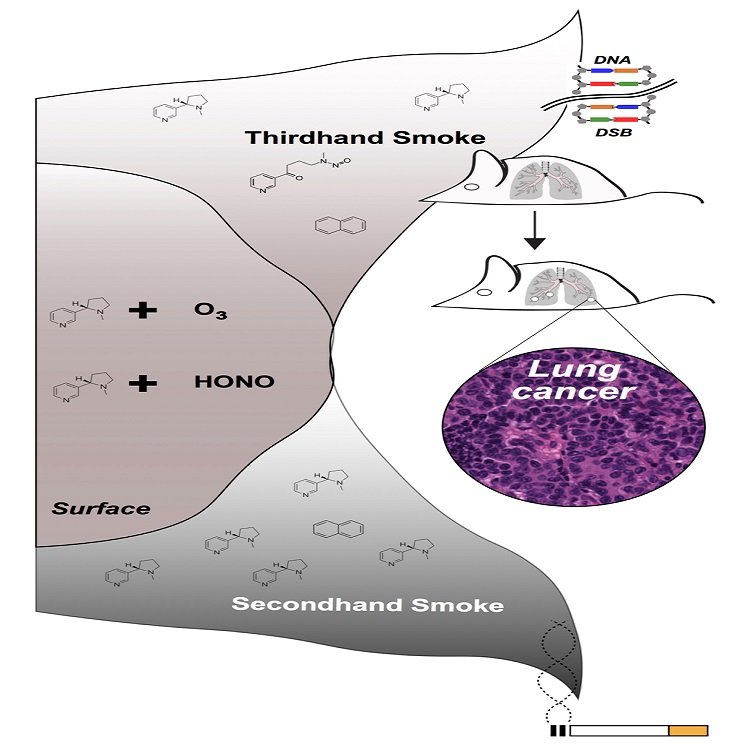According to a recent study by the Department of Energy’s Lawrence Berkeley National Laboratory, brief exposure to thirdhand smoke is associated with low body weight and immune changes in juvenile mice.
Scientists identified thirdhand smoke, the toxic residues that linger on indoor surfaces and in the dust long after a cigarette has been extinguished, as a health hazard nearly 10 years ago. They found that it also increases lung cancer risk in mice.
The study is published recently in Clinical Science, where scientists have determined that early thirdhand smoke exposure is also associated with increased incidence and severity of lung cancer in mice.
During the study, an experimental cohort of 24 A/J mice was housed with pieces of texture impregnated with thirdhand smoke from the age of a month to 7 weeks. The measurements the mice got was assessed to be around 77 micrograms for each kilogram of body weight every day – practically identical to the ingestion introduction of a human little child living in a home with smokers.

Forty weeks after the last presentation, these mice were found to have an expanded rate of lung growth (adenocarcinoma), bigger tumors, and a more prominent number of tumors, contrasted with 19 control mice.
Scientists next observed that what happens on both a molecular and cellular level. On the off chance that thirdhand smoke poisons harm DNA inside cells and the harm isn’t repaired appropriately, it can offer ascent to changes, which may prompt the cell getting to be malignant. To additionally examine how thirdhand smoke presentation advances tumor development, the group performed in vitro contemplates utilizing refined human lung malignancy cells.
These investigations showed that thirdhand smoke presentation initiated DNA twofold strand breaks and expanded cell multiplication and province arrangement. Moreover, RNA sequencing investigation uncovered that thirdhand smoke introduction caused endoplasmic reticulum push and actuated p53 (cancer silencer) flagging. The physiological, cell and sub-atomic information demonstrate that early presentation to thirdhand smoke is related to expanded lung cancer chance.
The study is the latest in several thirdhand smoke-related Berkeley Lab discoveries, and is part of an ongoing collaboration between Berkeley Lab and the UC San Francisco School of Medicine to study the impact of early exposure to thirdhand smoke in mice.
